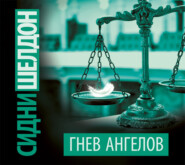По всем вопросам обращайтесь на: info@litportal.ru
(©) 2003-2025.
✖
Sidney Sheldon’s Reckless
Автор
Год написания книги
2019
Настройки чтения
Размер шрифта
Высота строк
Поля
Greg Walton and Milton Buck looked at each other briefly.
Then Walton said with a straight face. “I have no idea, General. But when we find him, believe me, that’ll be the first question we ask.”
FORTY MINUTES LATER, JAMIE MACINTOSH RECEIVED a call from the prime minister.
“Can you work with them?” Julia Cabot asked, once Jamie had debriefed her on his meeting with the Americans.
“Of course, Prime Minister. Frank’s not a fan of their FBI chappie. But they provided some very useful information.”
“Do you trust them?”
Jamie MacIntosh laughed. “Trust them? What a quaint idea! Of course I don’t trust them.”
Julia Cabot grinned. “Jolly good. Just checking.”
“They’re lying through their teeth about Drexel,” said Jamie.
“You think they know why he ran?”
“I think they know, and I think they’ll do anything to stop us knowing. I would dearly like to find Mr. Drexel before they do and learn what it is they’re hiding.”
“Well,” Julia Cabot said, “we’ll just have to make that happen then, won’t we?”
“CAN YOU WORK WITH THEM?” PRESIDENT Havers’s voice sounded tight with strain.
“Yes, sir,” Greg Walton said. “Agent Buck got off on the wrong foot with one of their guys. But the meeting was constructive. MacIntosh is a reasonable guy.”
“Tread very carefully, Greg,” the president warned. “There are places we want MI6 sniffing around and places we don’t.”
“Of course, sir. Understood. We’ll keep them under control.”
“What about Tracy Whitney?”
“We’ll keep her under control too.”
“Good. Just make sure you do. Good night, Greg.”
“Good night, Sir.”
MAJOR GENERAL FRANK DORRIEN WAS AT home in his living room, watching President Havers on television.
Sitting in the oval office with the American flag behind him, in an expensive dark suit and silk tie with his silver-gray hair slicked back, Havers looked like what he was: the most powerful man in the world.
“A week ago, the United States struck at the heart of a group of terrorists who wish to destroy our way of life. Group 99 had already brutally murdered a British hostage, Captain Robert Daley. We had reason to believe that their second hostage, the American journalist Hunter Drexel, was about to meet the same fate. We also had intelligence indicating that Mr. Drexel was being held in the same camp, in Bratislava, where Captain Daley was killed.
“A carefully planned, covert operation took place, based on that intelligence. And yes, that operation did involve American troops briefly entering Bratislavan territory. The United States makes no apology for this action. Although it appears Mr. Drexel was moved by his captors to another location following Captain Daley’s death, we established that both men had been held in Bratislavan territory—contrary to that country’s denials of harboring terrorists. Moreover, our mission was not in vain. Scores of terrorists were killed, the same individuals responsible for Captain Daley’s barbaric murder. Regrettably, six American servicemen also lost their lives.
“Make no mistake. The United States remains committed to fighting the terrorists who threaten our citizens, and our security, wherever we may find them. And whatever their so-called motivations, or justifications for their actions might be. Now, there may be folks who criticize us for that. But that has always been, and remains, the policy of this administration. Group 99 are not harmless. They are not freedom fighters or champions of the poor. They are terrorists.
“We remain confident that, working with our British partners, we will locate Mr. Drexel imminently. And in the meantime his captors should know this: You can’t run. You can’t hide. We will find you and we will destroy you.”
Major General Frank Dorrien winced and turned off the television. Havers was so dishonest, it made Frank’s teeth ache. Of course, most politicians were. But the Americans were such spectacularly glossy liars. Virtuosos of insincerity. Masters of misrepresentation.
How he despised them!
Frank’s thoughts turned to Hunter Drexel, the man for whom all these lies were being told. The United States had risked near total diplomatic isolation for a man who had not only run away from the soldiers sent to rescue him but who, by all accounts, was a typical, entitled journalist, interested only in his story and loyal to no one but himself. A gambler and inveterate womanizer, Hunter Drexel had left for Moscow with a string of broken hearts, angry editors and unpaid creditors in his wake. Men like that didn’t deserve to be rescued. To have brave, honest, loyal men risk their lives to save them.
Major General Frank Dorrien was big on loyalty. Loyalty to family, to religion (Frank was brought up staunchly Church of England and considered himself a conservative with a very capital C), to his country. But above all, Frank Dorrien believed in loyalty to the British army.
Frank would gladly die for the British army.
He would kill for it too.
In Frank Dorrien’s world, one did what one had to do. One did one’s duty, whatever form that took. Recently, duty had taken Frank in some unexpected directions. He’d been forced to make some difficult decisions. Distasteful decisions. But never once did he question his actions, or second-guess his superiors. That was not the soldier’s way.
The army was Frank Dorrien’s life. He had his wife, of course, Cynthia, whom he loved. And his opera, and his roses, and the Church choir, and his books on Byzantine History. But these were all fruits of the tree. The army was the tree. Without it, Frank’s existence would be nothing but a meaningless series of days, without order or discipline or purpose.
What was the purpose of men like Hunter Drexel? Or libertines like Group 99, revolting communists even before they started butchering people? Or women like Tracy Whitney, a thief and con artist who, for some inexplicable reason, Jamie MacIntosh appeared actually to admire?
Not for the first time, Frank Dorrien wondered about the dissolute world in which he now found himself working. Intelligence. Never had an industry been more ineptly named.
Still. Duty called.
“Would you like a cup of tea, Frank?”
Cynthia Dorrien’s voice drifted in from the kitchen, reassuringly normal and sane.
“I’d love one, darling,” Frank called back.
One day, this would all be over.
One day they could all return to normal.
BUNDLED UP AGAINST THE BITTER NEW York wind in a full-length mink coat and matching hat, her Tiffany diamond drop earrings sparkling like stalactites in the dazzling winter sunshine, Althea ran a black, gloved hand along the top of the gravestone, lovingly tracing a finger over the one-word inscription.
Daniel.
“He’s dead, my darling,” Althea whispered. “Bob Daley’s dead. We got him.”
Watching the Englishman’s skull explode across her computer screen had been gratifying. But it hadn’t brought Althea the closure she’d hoped for. She’d come to Daniel’s grave today in hopes that it might bring her some peace.
It hadn’t.
Perhaps it’s because he isn’t really here? The simple marble slab was just a memorial. Nothing lay beneath it. Thanks to them, Althea would never know where her beloved Daniel really lay, or whether he had even been buried. They had stolen that comfort from her, just as they had stolen everything else.
That’s why I don’t feel closure, she realized suddenly. Captain Bob Daley was just the beginning.
I must destroy them all.

















